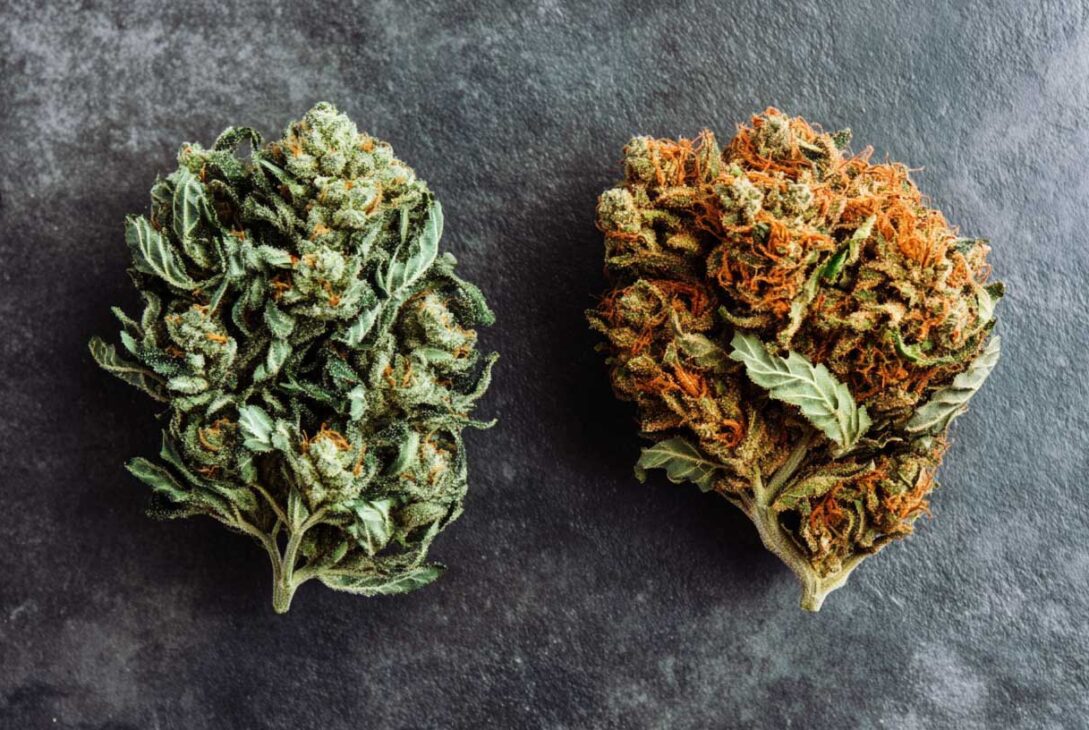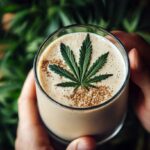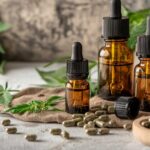Comparative Safety Profiles of CBD and Delta-8 THC: A Comprehensive Guide
Introduction
The wave of interest in hemp-derived products has sparked conversations about cannabinoids, particularly CBD (cannabidiol) and delta-8 THC (tetrahydrocannabinol). While both emerge from the cannabis family tree, they wear different crowns in the wellness arena. Understanding their safety profiles, uses, and potential side effects is essential for anyone looking to incorporate these cannabinoids into their lifestyle.
Understanding CBD and Delta-8 THC
CBD (Cannabidiol)
CBD is a non-psychoactive cannabinoid. This means you can use it without experiencing the high associated with THC. It’s gaining recognition for its potential therapeutic benefits—people often turn to CBD to help manage anxiety, pain, and inflammation. In the United States, CBD oil products are legal as long as they contain less than 0.3% delta-9 THC, making it accessible for many individuals seeking natural alternatives.
Delta-8 THC, though derived from cannabis, presents a different profile; it is psychoactive, albeit less potent than its more infamous cousin, delta-9 THC. Users often describe delta-8 as offering a milder high combined with therapeutic benefits. By binding to cannabinoid receptors in the brain, it can promote feelings of euphoria while helping alleviate stress and discomfort. This cannabinoid is frequently produced from CBD through a process known as isomerization, allowing for its legal status derived from hemp.
Safety Profiles and Potential Side Effects
CBD Safety Profile
- Common Side Effects: CBD is typically well accepted. Possible side effects may include:
- Drowsiness
- Changes in mood (such as irritability)
- Decreased appetite
- Gastrointestinal upset, like diarrhea
- Liver Toxicity: Some research suggests that high doses of CBD may lead to liver injury, especially when combined with other medications processed by the liver. To manage this risk, it’s advisable for users to seek medical supervision.
- Drug Interactions: CBD can interfere with other medications, leading to serious consequences. It’s wise to discuss CBD use with your healthcare provider, particularly if you’re on other treatments.
- Reproductive and Developmental Concerns: Emerging studies indicate potential male reproductive toxicity and impacts on offspring in cases where females have been exposed to CBD during pregnancy.
Delta-8 THC Safety Profile
- Common Side Effects: Delta-8 THC is associated with various side effects that may include:
- Euphoria and altered mood
- Red eyes and dry mouth
- Issues with coordination
- Increased heart rate
While many users enjoy the psychoactive experience, some might feel anxiety or paranoia. Starting with low doses can help alleviate these potential side effects.
- Psychoactive Nature: The psychoactivity of delta-8 THC means it can produce enjoyable effects for some, while others might feel anxious or uneasy due to its chemistry. Being moderate with your intake, especially at first, is essential.
- Drug Test Concerns: Delta-8 THC can lead to complications with drug testing, as many drug screenings cannot differentiate it from delta-9 THC, potentially leading to positive results.
- Synthesis Risks: Because delta-8 THC is often produced through chemical processes, improper methods can leave behind harmful residues. Choosing well-regulated products and reputable manufacturers can mitigate these risks.
Comparing Safety and Efficacy
Similar Benefits
Both CBD and delta-8 THC are valued for their potential to assist with:
- Pain Relief: Both cannabinoids may help reduce pain in various ways—CBD through its anti-inflammatory properties and delta-8 THC through its psychoactive effects.
- Stress Reduction: Many users find both cannabinoids help to alleviate anxiety, albeit through different mechanisms.
Differences in Safety Concerns
- Psychoactivity: The most significant distinction lies in their psychoactive properties. CBD’s non-psychoactive nature makes it more suitable for those seeking relief without altered mental states, while delta-8 THC can induce a mild high, which may not be ideal for everyone.
- Regulatory Status: CBD is more tightly regulated, with only one FDA-approved medication containing it for specific medical uses. On the other hand, delta-8 THC sits in a legal grey area due to its psychoactive effects and the absence of comprehensive regulation.
Ensuring Product Quality
Quality Control
- Hemp Cultivation: The quality of hemp is paramount for safe products. Seek those that follow rigorous cultivation practices, avoiding pesticides and heavy metals.
- Extraction Methods: The method of extraction significantly influences product safety. Ideal practices lead to pure products free from harmful substances.
Consumer Tips
- Start Low and Slow: Both CBD and delta-8 THC users should start with low doses to assess their bodies’ responses before gradually increasing as needed.
- Consult Healthcare Providers: This is particularly critical for individuals with existing health conditions or those on other medications. A healthcare professional can provide insights based on personal health history.
- Choose Reputable Brands: Look for companies that offer transparent labeling, third-party testing, and adherence to quality standards. This diligence instills confidence in the products you decide to use.
Conclusion
Navigating the diverse landscape of CBD and delta-8 THC can feel overwhelming, but it’s a journey worth taking for many. Key takeaways include:
- CBD: Known for its safety and therapeutic potential, with side effects mainly around mood, appetite, and possible liver concerns. It remains a non-psychoactive option suitable for general wellness.
- Delta-8 THC: Provides psychoactive effects, beneficial for pain and relaxation, but comes with a different set of risks, including failed drug tests and mood fluctuations.
Understanding these differences empowers you to make informed choices that align with your health goals. Always prioritize quality, safety, and professional guidance to navigate your wellness journey effectively.
In the ever-evolving world of hemp and cannabinoids, knowledge is your strongest asset. Stay curious and engaged as you explore the benefits of these remarkable plants.





















